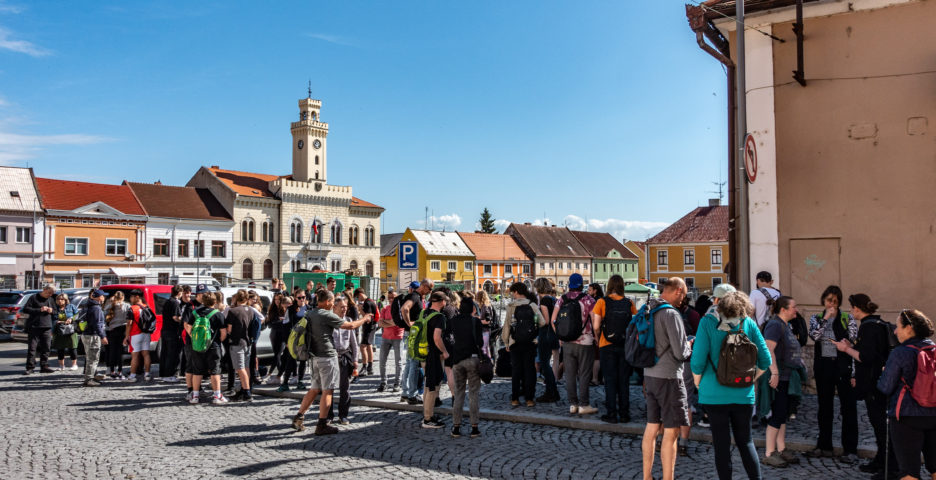In May, our researcher Michal Korhel participated in a student-led march from Postoloprty to Žatec in northwestern Czechia, held in remembrance of the tragic events of late May and early June 1945, during which hundreds, possibly thousands, of German-speaking civilians — including women and children — were killed in Postoloprty.
Throughout the march, participants symbolically carried the names of the victims, aiming to foster a personal connection with the past and to restore individual identities to those who have long remained anonymous in historical records.
The route traced key locations linked to the massacre, and the experience was marked by several deeply emotional moments — including an encounter with a local resident whose father was among the victims, and stops at memorials established by activists.
While silence persists in some local communities, memory initiatives — often spearheaded by individuals from outside the region — continue to play a crucial role in preserving awareness of this painful chapter of history.
The march was not only an act of remembrance, but also a call for historical accountability — an attempt to address the overlooked and unspoken aspects of the past and to give voice to those who have been silenced for decades.
In the accompanying text, Michal reflects on his experience, shares conversations held during the walk, and situates these moments within the broader framework of local memory culture.
Link to the blog post you can find here.

